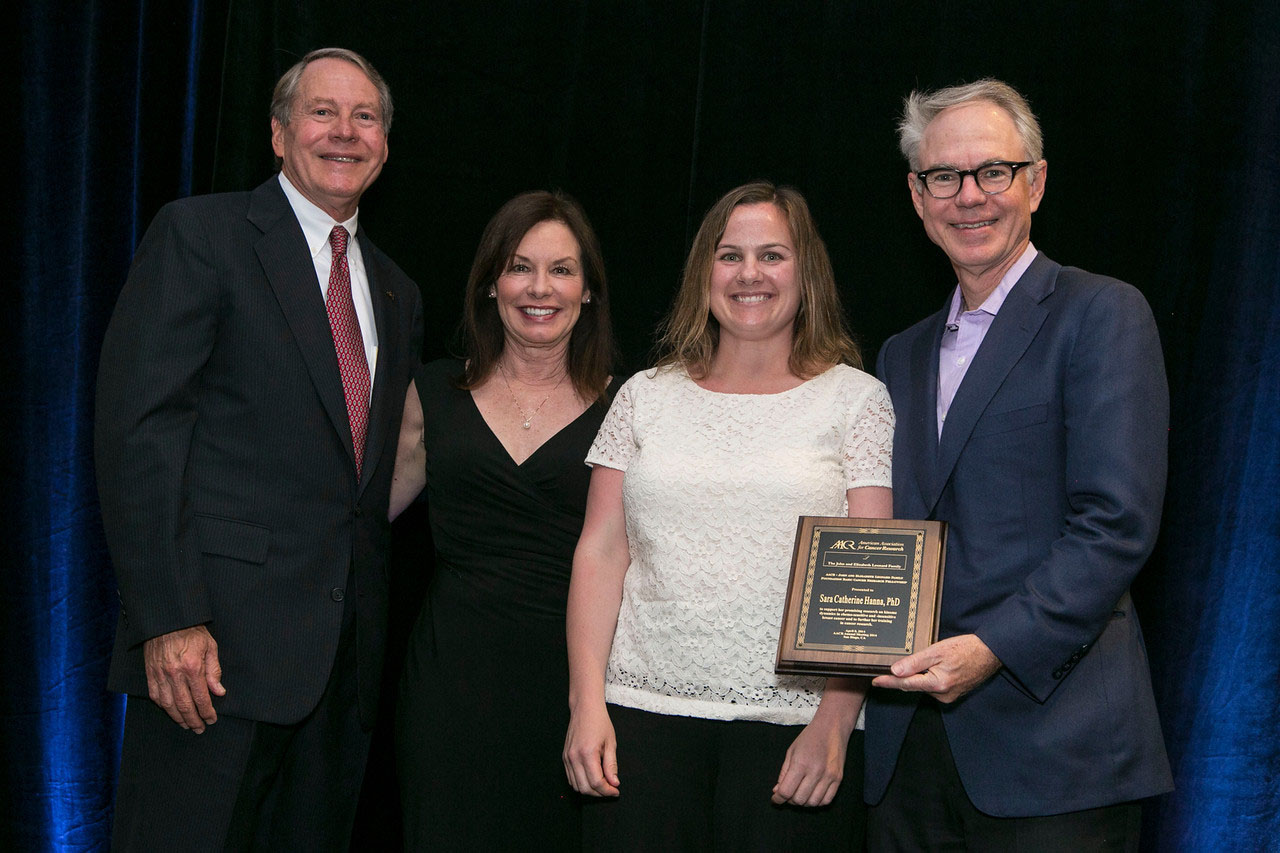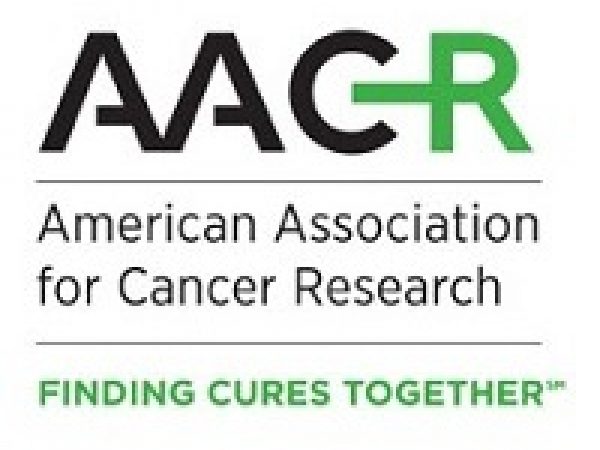Learning How to Target “Untargetable” Breast Cancer Through Basic Cancer Research
Sara Hanna Velarde, PhD, began her career in cancer research as a graduate student at the University of North Carolina in Chapel Hill (UNC), where she focused on melanoma, an aggressive form of skin cancer. Her graduate work investigated how transcription factors that are activated in low oxygen environments (hypoxia inducible factors) could contribute to metastasis. These studies instilled in Velarde a profound interest in cellular signaling and the role that these signaling pathways play in tumor growth and progression.
After receiving her doctorate, she moved on to a postdoctoral research position with Gary L. Johnson, PhD, also at UNC. Under Johnson’s mentorship, Velarde is now applying her knowledge of melanoma biology to triple negative breast cancer (TNBC), and in 2014, received the AACR-John and Elizabeth Leonard Family Foundation Basic Cancer Research Fellowship to support this work.
When asked why her focus shifted from melanoma to TNBC, Velarde explained that interesting similarities exist between these two seemingly different cancer types. “My graduate research in metastatic melanoma influenced my decision to study signaling pathways in aggressive, therapy resistant cancers, such as TNBC,” she says. “My experience and background with these pathways in metastatic melanoma has provided a strong foundation towards identifying possible targets in TNBC that lead to chemotherapy resistance.”
Identifying such targets is particularly critical for TNBC, as it is considered one of the most difficult to treat forms of breast cancer. “The difficulty in treating TNBC,” says Velarde, “is largely due to the lack of targetable receptors, which have made other types of breast cancer more treatable, leaving chemotherapy as the only treatment option.”

Sara Hanna Velarde, PhD, (second from the right) alongside Charles L. Sawyers, MD, and John and Elizabeth Leonard at the 2014 AACR Annual Meeting grants reception. Photo by © AACR/Todd Buchanan.
The search for these targets is at the center of Velarde’s project funded by her AACR-John and Elizabeth Leonard Family Foundation Basic Cancer Research Fellowship, which is designed to examine kinome dynamics in chemo-sensitive and -insensitive breast cancer. “My study will allow us to understand why certain TNBC tumors respond to chemotherapy, but others do not,” she notes. “By examining the differences between these tumors we can identify novel targets that could potentially increase the effectiveness of chemotherapy in the clinic.”
Velarde’s work is considered basic cancer research, often described as the scientific foundation upon which new clinical discoveries will be made. Indeed, she sees basic cancer research as an integral component of biomedical discovery. “Basic research is essential for improving our understanding of the signaling pathways involved in metastasis and resistance,” she says. “It allows for the identification of novel targets and, ultimately, the development of clinically effective therapeutics.”
Velarde’s fellowship term ended in June 2015, but she continues to work diligently towards her goal – to identify novel targets that can be used to develop greatly needed therapies for difficult to treat cancers like TNBC. “I am excited to continue this project and hope that the research can contribute to making therapy more effective for TNBC patients,” she says.



